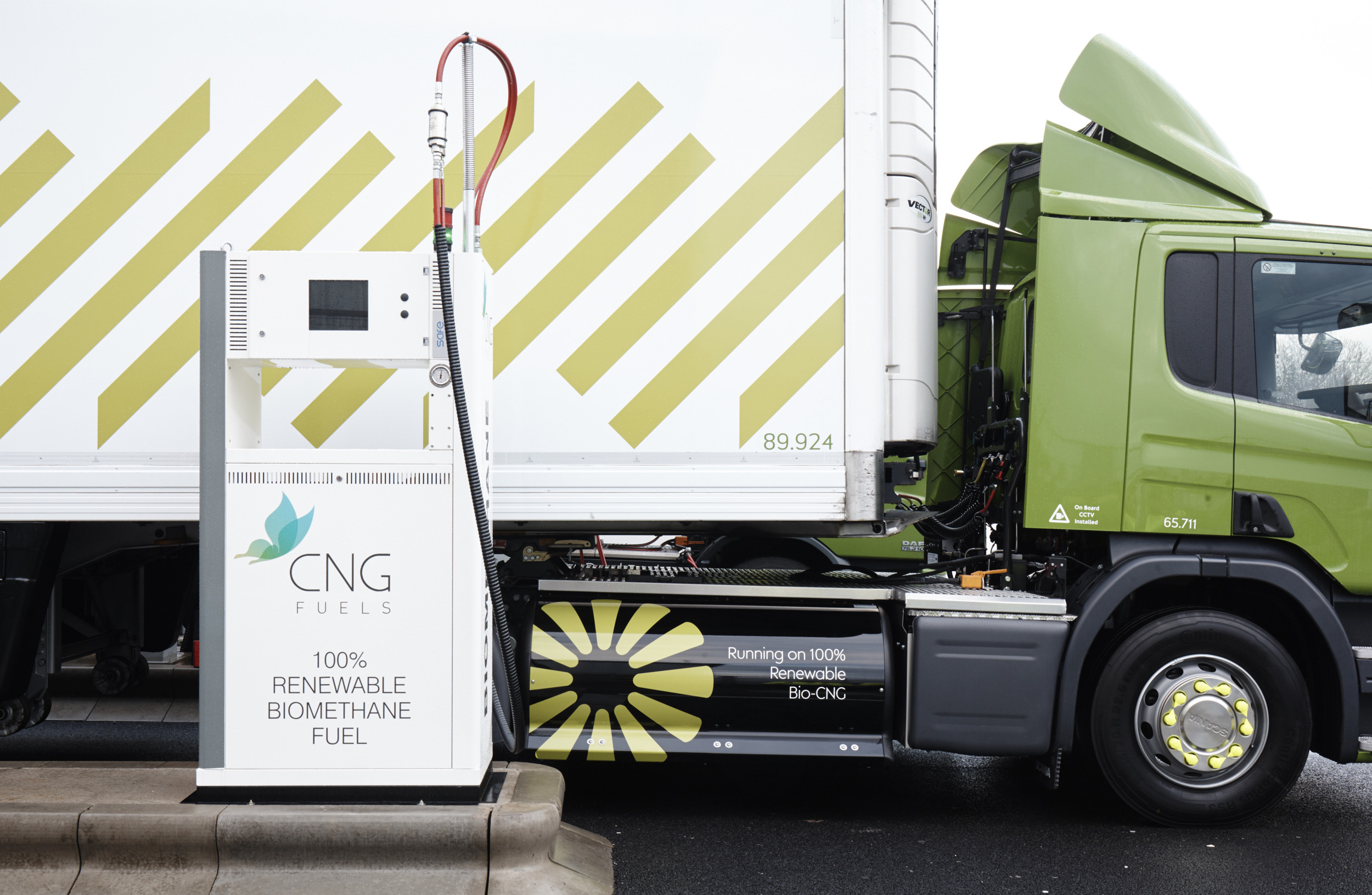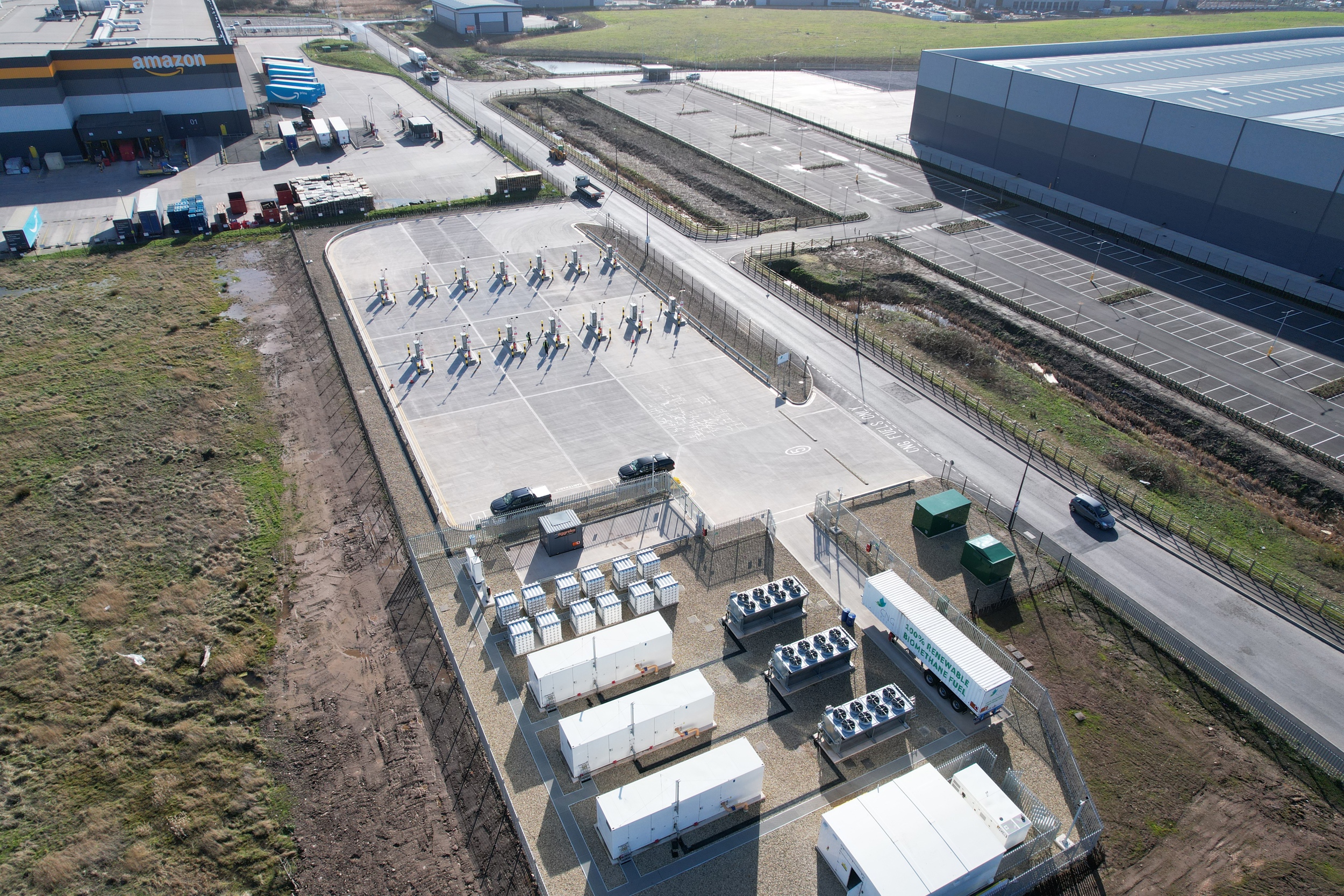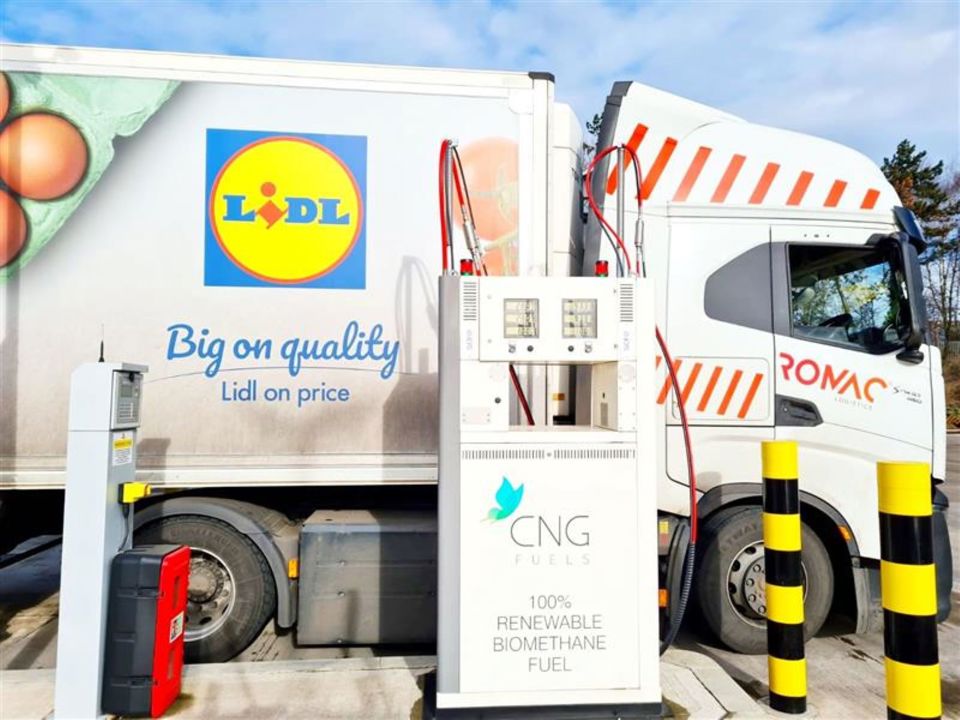Fleet decision-makers tasked with decarbonising emissions from their heavy goods vehicle (HGV) operations are increasingly turning to biomethane trucks.
Demand for renewable biomethane has increased by 1,000% over the past five years and is predicted to increase five-fold over the next five years as the UK’s 2040 ban on the sale of new diesel HGVs approaches.
“Bio-CNG is the only fuel available today that can decarbonise the UK’s HGV fleet at the scale and pace required to meet net zero," said Philip Fjeld, CEO of ReFuels and CNG, which announced it was starting construction on a new biomethane HGV refuelling station in south-east England this week.
In total, its existing network of 12 refuelling stations, situated across the UK, can refuel more than 6,000 HGVs daily.
By 2026, the company aims to have 30-40 stations in operation with a total capacity of up to 15,000 HGVs refuelling per day and more than 600 million kilogrammes of biomethane dispensed annually.
Demand for Bio-CNG from fleet operators is growing rapidly, says Fjeld. In July alone, 3,799 tonnes of Bio-CNG was dispensed across CNG Fuels’ stations, equivalent to an 80% increase compared to the same period last year.
The fuel supplied by CNG Fuels is 100% renewable and sustainable biomethane, sourced from food waste and approved under the Department for Transport’s Renewable Transport Fuel Obligation (RTFO) scheme.
Fjeld told Fleet News: “From founding the company to getting 1,000 trucks exclusively using our station network took us about eight-and-a-half to nine years. We will get to 2,000 trucks in about 12 months.
“Why are we now seeing that mass adoption occur? One, we’ve got 12 stations, which doesn't sound a lot, but they’re big and once you get them in the right locations it really helps.
“Two, we’ve now gotten to critical mass with customers who are now no longer saying ‘does the CNG truck run as well as a diesel truck?’.
“They are totally convinced. They’re as reliable, the economics work and they are happy with the greenhouse gas emission reduction.
“We’ve now reached this inflection point where we are seeing mass adoption occur.”
ReFuels supports more than 80 major fleets operating Bio-CNG vehicles, including the John Lewis Partnership, Aldi, Amazon, DHL, Lidl, Royal Mail, and Warburton’s.
New refuelling station helps CNG fleet expansion

A new biomethane refuelling station for HGVs entered construction in Aylesford, Kent, this week.
Capable of fuelling more than 500 trucks per day and of delivering 19 million kilogrammes of Bio-CNG annually, the 12-pump site is a joint venture between CNG Fuels, the infrastructure arm of ReFuels, and Foresight Group, a sustainability-led investment management company.
Serving major UK trunk routes including the M20 and M2, the site is being built on land acquired by ReFuels from the John Lewis Partnership (JLP) adjacent to Waitrose’s southeast distribution centre, enabling the retail giant to rapidly grow its fleet of biomethane-powered HGVs, which is already the largest such fleet in the UK.
Justin Laney, general manager for fleet at the John Lewis Partnership, said: “John Lewis Partnership took delivery of its first dedicated CNG trucks in 2015 and now operates 400 CNG trucks, which is the largest biomethane-powered truck fleet in the UK.
“We are delighted that CNG Fuels has started construction of a high-capacity Bio-CNG station in Aylesford, where Waitrose has its southeast distribution centre.
“John Lewis Partnership is committed to all of its 520 heavy-duty trucks running on biomethane by 2028, and the Bio-CNG station in Aylesford is another important step towards realising this goal.”
ReFuels has one other station under construction in Bangor, North Wales, which is due to start operations in the next month. At least two further stations are expected to commence construction this calendar year.
It opened what it described as the world’s largest public access biomethane refuelling station in Avonmouth, near Bristol, in March.
Located near the M4/M5 junction just outside Bristol, the site is capable of refuelling 80 HGVs per hour from 14 high-speed dispensers.
Meanwhile, in April, CNG Fuels acquired Renewable Transport Fuel Services Limited (RTFS), the largest renewable biomethane sourcing company for UK transport, and established a new holding company – ReFuels – to create one of Europe’s largest fully integrated renewable biomethane suppliers for heavy transport.
Government backing for fuel
The UK Government biomass strategy, published this month, backed biomethane as an attractive fuel for HGVs and other harder to decarbonise fleets which may be more challenging to electrify.
HGVs account for 4.2% of UK carbon emissions, making the sector a key component of the UK’s goal to achieve net zero by 2050.
ReFuels claims that renewable biomethane – derived from food waste and manure – is the lowest carbon, most cost-effective alternative fuel to diesel available to HGVs today, cutting emissions by over 90% while providing up to a 40% lifetime fuel cost saving.

Return on investment
A CNG truck will typically cost around £20,000 more than its diesel counterpart, but Fjeld says fleets can expect a return on investment within two years.
He explained: “Your pence per mile cost is significantly lower than running a diesel truck. So, yes, it's more expensive from day one, but your payback period is one to two years.”
Furthermore, he said: “You can remove a diesel vehicle, put a CNG vehicle in and you can do exactly the same work, exactly the same driver hours and you don’t need more vehicles. It's a like-for-like replacement.”
He concluded: “Well over one hundred fleets across the UK are now adopting the fuel en masse and our new site in Aylesford, built on land acquired from the John Lewis Partnership, is a testament to this growing demand and the value fleet operators place on the enabling refuelling infrastructure.”





















Login to comment
Comments
No comments have been made yet.